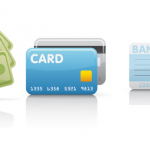Top 10 Ways to save money on Payment Processing
Managing your business finances is your responsibility. This applies to every aspect of the business and one often-overlooked area is the payment processing that your company pays for every month.
It is very common for a business to accept the first or second offer they receive when initially setting up your business’ payment processing accounts. It is even more common for a business to stay with a company even though they could be saving money, often in the thousands of dollars a year, by occasionally shopping around or calling their provider to see if their rates can be lowered.
Setup right from the start:
Chances are that when you first registered your business you were barraged with a multitude of calls from merchant service providers offering you the ability to accept credit cards and other electronic payments. If you took one of these offers without investigating your other options, you are probably paying much more than you need to be for credit card processing. The best solution for any business, existing or startup, is to shop around for the best deal possible. The best place to start shopping is the internet. With so many payment processing providers in direct visible competition of each other, you are sure to find several good companies, and the best rates available.
Consider accepting eChecks instead of credit cards:
Electronic Check payments are typically much cheaper than credit card payments, sometimes up to 90% cheaper. If you run a storefront operation, you can easily accept checks over the counter, and then immediately convert them to an electronic item, verify funds availability, and even hand the paper item back to the customer – all while they are still at the counter in the same amount of time it takes to obtain a credit card authorization. Money can be deposited into your account as soon as the next day with essentially the same risk as a credit card transaction, while saving a ton over credit cards fees.
If you run a web based or non customer facing business, you can still accept check payments. All you need to do is collect the numbers from the bottom of a check in the same manner you would collect a credit card number. And if the customer does not have a check, there are tools out there that can allow them to quickly look up their bank account information without even pulling out their wallet.
Checks have the stigma of being “old school” but with modern technology they can be as easy to process as credit cards, but can save you a ton of money on processing costs.
Don’t lease Processing Equipment:
Purchase your processing equipment outright. Despite beliefs, processing equipment isn’t as expensive as many people think, and you will pay many times more for leasing than you will for purchasing. Many businesses have been sold very expensive equipment by the same companies that solicited to their businesses over the phone when they started up. Equipment costs from about $200 for a basic terminal up to $1000 for a high-end wireless terminal, with most common terminals falling into the $250 – $350 range. If you are offered a much higher price, then you are essentially being scammed. Look around on the internet for prices on the terminal you are being offered, you will probably find a better deal and a better company.
Be wary of too good to be true offers:
So many times, merchants are pulled away from their existing providers by rates that seem so much better that what they currently have. Later they find hidden and extra fees riddled throughout their merchant account contract. If the rate you are being offered is considerably lower than any others you have hear, or you are offered no transaction fees, you should be wary of the offer. Merchant account providers all have a very similar buy cost on merchant account fees. If one provider seems to be much lower than the others, then they are going to make the money up somewhere else. Why would a provider loose money to have your business using their services?
Know your business accountant:
It is very common for accountants to have personal relationships with payment processing companies, especially if the accountant manages multiple businesses. Often accountants are given bonuses for referring new merchants and for keeping their businesses with the merchant service company. Your business may be paying more because your accountant is getting a kickback from a merchant service provider.
Stay away from the bank:
Banks provide merchant services. Yes, this is true but all but a few very large banks sign their customers with a private merchant service provider. Banks that do not provide their own merchant services, mark up fees from a merchant service provider, so they can also make money on your business. You are basically paying extra for a middle person when you don’t have to be. Those banks that do provide their own merchant accounts have much higher fees and poor customer service when compared to merchant service providers. They also have much higher equipment prices and will almost always try and push or force equipment leases on their customers. Let your bank handle your checking account, but keep your merchant account separate.
If you are a retail business, get setup with signature and pin debit:
Signature debit is a relatively new system that gives a much lower processing fee to debit transactions verses credit transactions. A signature debit transaction is when a customer runs their check card like a credit card. Pin debit is where a customer enters their pin number into a pinpad to process the transaction. You will need a pinpad or credit card terminal with an internal pinpad to use pin debit, but you will eliminate your processing fee completely and have a flat rate transaction fee for every pin debit transaction. Studies have shown that about 50% of all plastic transaction are Pin or Signature debit. This means that you can save on 50% of your customer’s transactions. The price of a pinpad can be quickly paid for in the fees that you save using pin debit.
Fixed Rates:
Make sure when you sign up that your provider will not raise your rates. The only time that you should see a rate change is when Visa or MasterCard raises the processing interchange rate. This means that Visa or MasterCard raises the amount that they collect from each transaction. Your rate will go up proportionally because the entire industry has to pay this extra amount. No company anywhere is excluded from an interchange increase.
Bundled Rates:
Another very common pitfall is for a business to accept a bundled rate offer. These offers have a very low or zero transaction fee, and an increased processing percentage. If you have a history of processing and statements, a bundled rate ‘can’ save you money, but if you are a new business you will almost always pay more with a bundled rate. Bundled rates are based solely from your average ticket size. If you have a highly variable ticket size or you are a new business stay away from bundled rates.
Listen to colleagues:
Ask around when you interact with other business owners and find out what services they are using. Generally there is no replacement for a good experience and referral from a trusted colleague.







